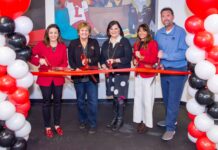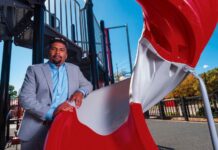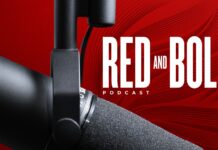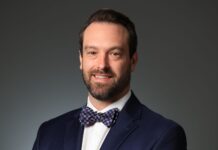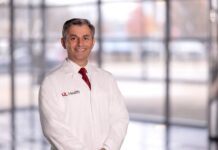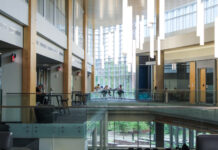
Twenty budding scientists from local high schools were selected from more than one hundred applicants to learn what it takes to become cancer researchers through a summer program with the UofL School of Medicine faculty and UofL Health – Brown Cancer Center (BCC).
This year, students from Atherton, Butler, Christian Academy of Louisville, Collegiate, Fern Creek, Jeffersontown, Kentucky Country Day, Male, Martha Layne Collins (Shelbyville), Manual, New Albany, (IN), Sacred Heart, Seneca and Waggener are taking part in the summer experience.
With support from the Humana Foundation and the Regional Cancer Center Corporation, for the first time in its 23-year history, the eight-week program was able to offer students an increased stipend of $4,000 to participate and gain valuable experience in medical research. Students interested in science but who may have needed to work summer jobs, now have the opportunity to follow their interests.
UofL News spoke with the BCC High School Summer Research Program Director, Robert Mitchell, professor in the Department of Surgery, UofL School of Medicine, and deputy director of basic and translational research at UofL Health – Brown Cancer Center.
We also caught up with Erin Brock, Seneca High School science teacher and program coordinator, and participating Fern Creek High School student, Aliete Yanes-Medina.
UofL News: What is the main goal of the summer cancer research program?
Robert Mitchell: We want to give students who are passionate about science an opportunity to experience – firsthand – how a cancer research lab operates and how important it is for developing new and improved cancer therapies. I’ve heard of three or four students from this summer’s program who are now considering going into a graduate research program after finishing college. For us, that’s a huge victory.
UofL News: Each student has their own mentor and research project. How has that helped them develop as students and scientists?
Mitchell: Each student has the opportunity to present their own project at the end of the summer in poster form – a project that they were forced to learn, understand and, most importantly, put into words how scientific problems are approached and completed. It’s a powerful thing to see a young student’s pride in describing something that they’ve accomplished on their own at the end of the summer.
One of the most popular things that was added this year is the weekly rotations through five different core laboratories that make up our Drug Discovery Platform (DDP). These rotations expose students to each step of the process involved in discovering new anti-cancer drugs. I’ve witnessed kids who are painfully shy or introverted become extremely animated and excited while they were doing their own enzyme inhibition experiment during one of the DDP rotations.
UofL News: Erin, this is your first year working with this summer program. How do you see this experience helping students define their future career goals?
Erin Brock: Our model is helping kids make connections to the community, and UofL has been a huge partner. When I was in high school, I knew I loved science, so I assumed I needed to be a medical doctor – but there are so many alternatives I wasn’t aware of, just like for these students. One of the best parts of this program is getting them exposed to scientific research and helping them to discover their own passion. I think they all got something meaningful out of it.
 Aliete Yanes-Medina displays her project at the poster presentation
Aliete Yanes-Medina displays her project at the poster presentation
UofL News: Aliete, what has this summer’s research experience meant to you? What has been your biggest takeaway?
Aliete Yanes-Medina: I always wanted to get into medicine, and I thought I would be going straight into patient care, but when I saw this opportunity, I realized this was something I wanted to explore. Also, personally, a lot of people in my family have had cancer, so I was emotionally connected.
My takeaway has been the fact that I’ve been learning so much and how everybody in the lab is supportive. They’ve said, ‘Hey I found this article that you may like’ and then they send it to me, or ‘Hey, I found this resource that may help you to understand the articles’ and they send it to me. It has definitely opened my mind, and my plan now is to do research in the future. I was thinking about going to college out of state, maybe doing biology, but it has completely changed what I want to do now. I’m staying at UofL.
Mitchell: It’s so amazing seeing a student light up and become inspired by cancer research. Just reaching one student like this is reward enough.







